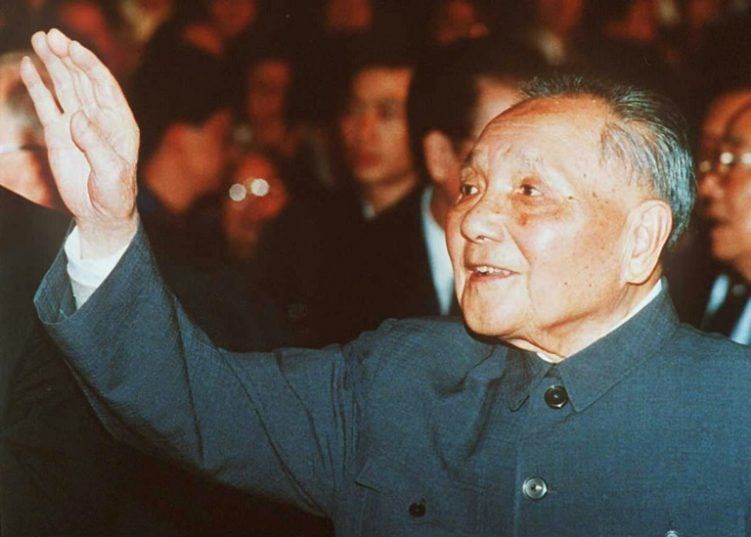As Xi Jinping marches toward presidency for life, economists are lauding the stability of his continued rule but the move has caused some Chinese people to consider moving assets, or themselves, abroad.
The Communist Party’s move to scrap presidential term limits is the latest indication Xi is returning the country to strongman rule, undermining the consensus of technocrats that has governed China in recent years.
But a lengthy period of stability under Xi, whose second term would normally end in 2023, will give him time to push through the much needed reforms he has championed, analysts say.
Xi and his economic team have pledged to tackle China’s ballooning debt, move the economy towards sustainable consumption-based growth and taken aim at corruption endemic in the Communist Party.
The “measures are more likely to be successful with a strong and steady leadership”, said Robert Carnell, chief economist at ING Bank.
“The ability to get stuff done is something that the weak coalitions that govern, for example, most of Europe, would give their eye-teeth for,” Carnell wrote in the note to investors quoted by Bloomberg News.
At Davos in January, Xi’s top economic advisor Liu He told the crowd of global elites China would get financial risk under control within three years.
“This reform agenda would last for decades,” economist Raymond Yeung at ANZ Bank wrote in a note to investors, which was largely positive on the raft of proposed constitutional changes.
– Concentration of power –
Liu, who analysts believe could be in line to become the next central bank chief and also hold the title of vice premier, is in the United States this week dealing with the thorny trade issues rocking relations between the world’s two largest economies.
A firmer grip on the country for his patron Xi may give him greater leeway to bargain with Donald Trump’s administration, analysts say, though others caution it could harden China’s positions.

Reformist leader Deng Xiaoping, who began the process of opening up China to the world, warned against building the country on the rule of just one or two people
The United States and Europe have also complained that Beijing has repeatedly failed to keep its word on opening up its market to foreign firms, which still face many obstacles.
History shows one-man rule can hamper effective economic decision-making, though.
The horrors of Mao Zedong’s Cultural Revolution and Great Leap Forward are still remembered by many in China.
Following the disastrous policies, the Communist leadership sought to prevent further chaos by tempering presidential power through a system in which major personnel and policy decisions were hashed out by the powerful Politburo Standing Committee.
Economist Andrew Polk of Trivium Research said in a newsletter that the changes will strengthen Xi’s hand in implementing his policy agenda but invoked Deng Xiaoping to question the long-term wisdom of the moves.
“To build the fate of a country on the renown of one or two people is very unhealthy and very dangerous,” Polk quoted Deng, the reformist leader who began the opening up of the country in the 1970s.
– Speaking with their feet –
China is increasingly susceptible to “key man risk”, Polk warned.
That fear — and memories of Mao’s rule — is giving some Chinese pause about the direction of their nation.
Discussions of emigrating abroad and ferreting out assets are seeping into conversations in the capital and in chat groups online — until censors find them.
One real estate agent selling to Chinese buyers in the Silicon Valley city of Palo Alto, California, said on social media he had seen a flood of new interest since the changes were announced.
Some agencies that help Chinese emigrate abroad say they have received a higher level of inquiries in recent days.
“We’ve been getting more calls than normal,” said Kitty from Globe Visa, which helps Chinese emigrate to the US and Canada.
“It has to do with the government.”
An employee at immigration consultancy Qiao Wai said they too had been receiving more calls than usual in recent days.
Data from China’s search engine — Baidu Analytics — showed searches for immigration skyrocketing in the hours after the announcement on Sunday.
By Tuesday, Baidu was no longer releasing the data to the public.
“We temporarily provide no data for the keyword ’emigrate’,” a search on its analytics platform returned.
Likewise, posting about immigration was blocked on Twitter-like Weibo and the Quora-like question website Zhihu stopped displaying related questions.






